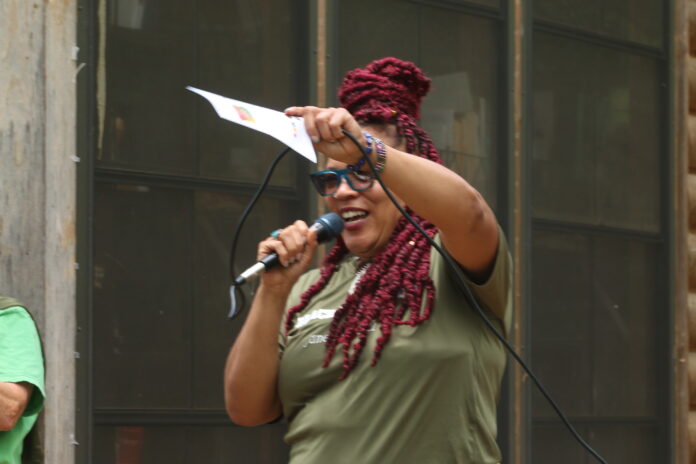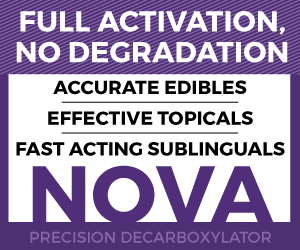Has Minnesota become the land of milk and honey for edible brands? We discussed that, along with local sourcing, social equity, The Great Rise, 40 Acre Co Op. and more with Nathan Rather and Angela Dawson. Read our full interview below.
CashColorCannabis: I’m honored to be able to speak with both of you today about Minnesota and some of the great work that you both are doing to push legalization and social equity. So for those who don’t know, please introduce yourself. And tell us what you do and how you operate in this cannabis space.
Angela Dawson: My name is Angela Dawson. I’m a fourth generation reclamation farmer.
As a fourth generation reclamation farmer. Farming was lost in my family two generations ago, and along with 98% of black farmers that were dispossessed of their land and lost their farming legacies in this country. A lot of people have been hesitant to reclaim their family’s farming legacy. I’m the first one of the legacy of those grandparents who lost the farm to decide to become a full time farmer.
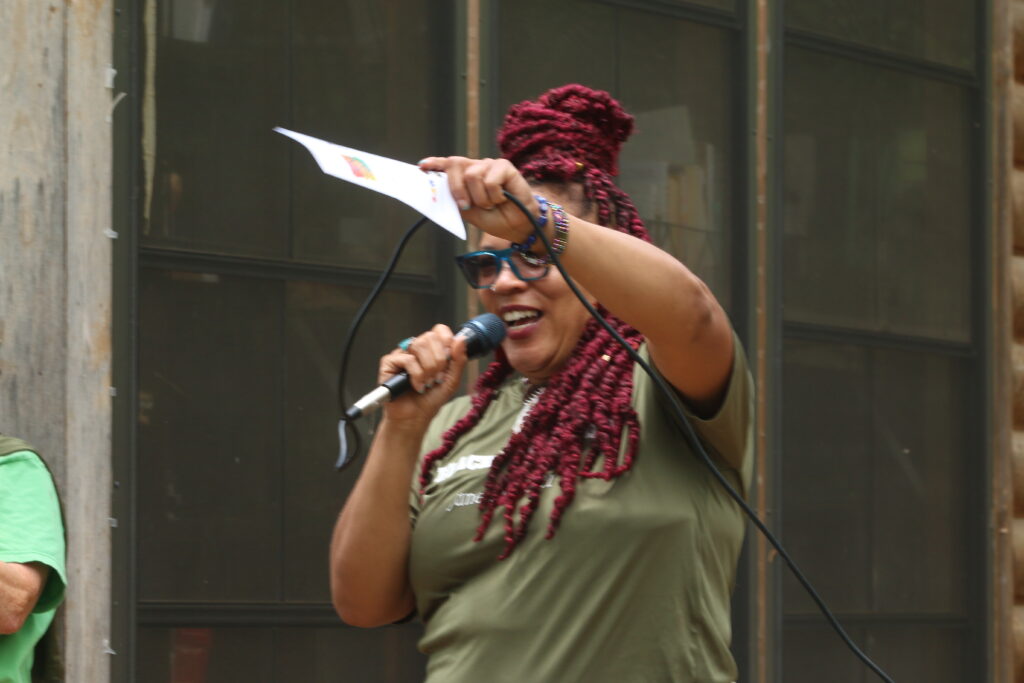
CashColorCannabis: Being a full-time farmer comes with its own set of issues I’m sure.
Angela Dawson: It is not without its own challenges. Farming chose me.There was a time in my career, when I had a crossroads to make a couple of decisions about where I wanted to be in the next 20 years. I was in corporate America and I had felt like I had reached whatever the glass ceiling was for black women here in Minnesota.I’ve dealt with my own barriers when I decided to become a full time farmer. I ended up co-founding an organization called the 40 Acre Cooperative. The 40 Acre Cooperative is basically a co-op of farmers who are working to create their own resources within agriculture. I’m very excited about our conversation today, which is how reclaiming farming links into cannabis.
CashColorCannabis: What prompted 40 Acre Co-Op to encourage growing cannabis.
Angela Dawson: We decided to prioritize hemp and cannabis as our primary crop to grow in order to create economic sustainability for our co-op.
CashColorCannabis: We were talking prior to the interview you spoke to me about using farming to bridge a gap in the Black community. Speak to us about what that means to you.
Angela Dawson: I see it in two ways. Even though people in your generation are pretty much disconnected from farming, I think during the pandemic, people started to understand how fragile our food system was. There became a greater interest in farming and food and sourcing our food and where our food stuff comes from.
Then of course, the second thing is the legalization market, right, like now that we have this cannabis that’s available in more states, legally, we have to start thinking about the source of that, right.
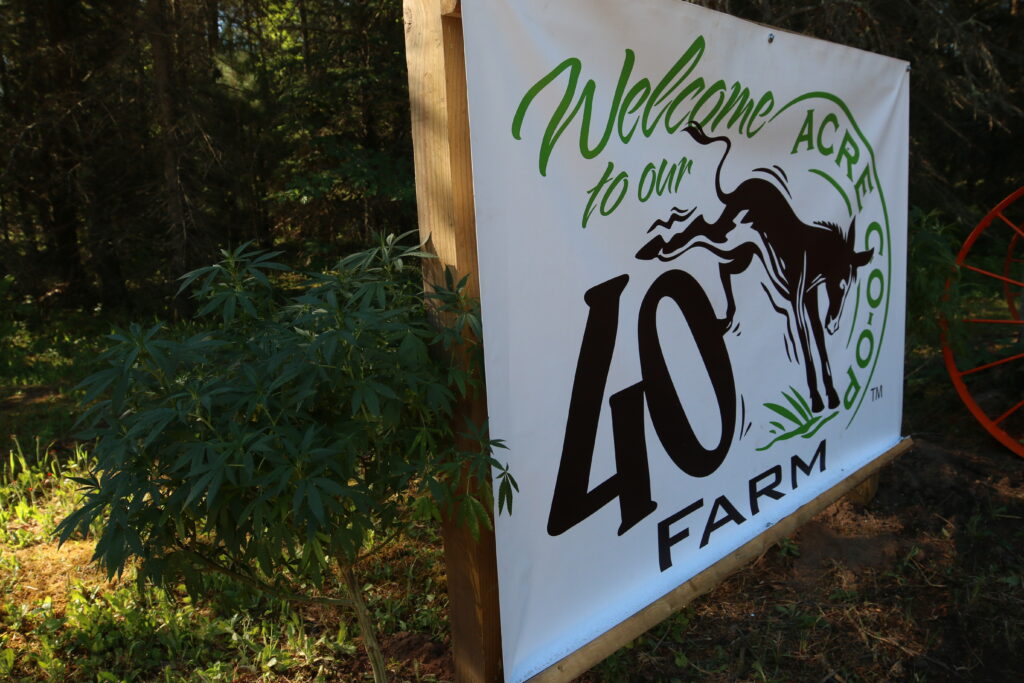
So, there’s a greater interest now and farming and food and sourcing our food and where our food stuff comes from. Then of course, the second thing is the legalization market. Right now that we have cannabis becoming available in more states legally, we have to start thinking about the source of that, right? That’s another medicine. That’s another food in the marketplace. And so we’re starting to be more intentional about the sources of things. Between the need for food justice and social justice is where I’m connecting with people and bridging that gap with farming and multigenerational no conversation.
I think when you add the two, it can become more and more attractive to people in your generation.
CashColorCannabis: Minnesota looks to become another state that decides to go legal. Why do you feel like it’s the right time for Minnesota to take these next steps?
Andrea Dawson: I’ve heard some of my southern friends say that they call Minnesota, the Mississippi of the North, because of the disparities that exist for people of color here when it comes to important quality of life measures like home ownership, like food access, like health indicators and education indicators. Those are the reasons why we decided to organize. The center of our cannabis equity conversation around these disparities in Minnesota.
Now that Minnesota is talking about legalization let’s figure out how we can center this equity conversation to put Minnesota in perspective of the rest of the country that is also looking at legalization right.
One of the things about Minnesota is that even with all of those horrible disparities for people of color, Minnesotans are super competitive about being the best at things. We like to be the smartest, the first, the number one, and have the highest number of something great. But what we’re doing with the Great Rise campaign is letting people know that Minnesota actually has some areas that it needs to get going on. Especially when it comes to equity with people of color that live in this state. So that’s part of what we wanted to make sure that people understood, even though people are legal states are legalizing all over the country, what are their equity numbers looking like?
CashColorCannabis: Explain to us what the Great Rise is and how you and Nathan came to work together?
Angela Dawson: I can say first that an amazing set of coincidences, I was introduced to Nathan, co-founder of Great Rise. who has been doing a lot of leadership work in Minneapolis, especially after the killing of George Floyd. Really just out of our connection, the Great Rise was born
Leafly: I wanted to discuss with you edibles. It seems like Minnesota inadvertently placed themselves at the forefront when it comes to edibles. You can now purchase edibles in Minnesota anywhere you can get carded. Talk to us about how that law passed and what you feel that can do for the state overall?
Nathan Ratner: Yeah, absolutely. I think what a lot of people don’t know about Minnesota is how unequal it is. Racially, we have the third worst wealth gap of any state in the nation. The difference between urban wealth and rural poverty is extreme and growing all the time.
So as much as Minnesota loves to view itself as a bastion of equity and sort of enlightened thinking, the reality is far from that. As Angela mentioned, cannabis presents tremendous opportunities in a bunch of different directions. For us, it was especially around how do we pursue economic justice and our firm belief with this campaign is that cannabis can be a catalyst for that.
This brings us to where we are in Minnesota with regards to cannabis law.
The state legalized edibles up to five milligrams per edible, and 50 milligrams per bag and nothing else. So no smoke, no flower, nothing else. Just edible. But we did it in a way that’s extremely liberal where any place that cards can sell edibles, such as gas stations, liquor stores. There are no dispensaries, there’s no special regulation.
So how did this policy get passed? The state isn’t making any extra tax money. It’s a little bit ramshackle. It was not so accidental that we passed it. There were some people who shaped the legislation who knew what they were doing. They understood that this is what they could get done right now. The goal is full legalization. So what they wanted to do was at least legalize the selling of some kind, and then build on that to get to full legalization because now the only way that they can go back to a place where THC is not legal at all, is to take money out of people’s pockets.
I think that in this next legislative session, which will be this coming spring, we’re gonna get to full legalization in Minnesota. And with the partnerships that we’ve already been able to forge, we think Minnesota can be best in the nation and actually ensure equity within the cannabis economy.
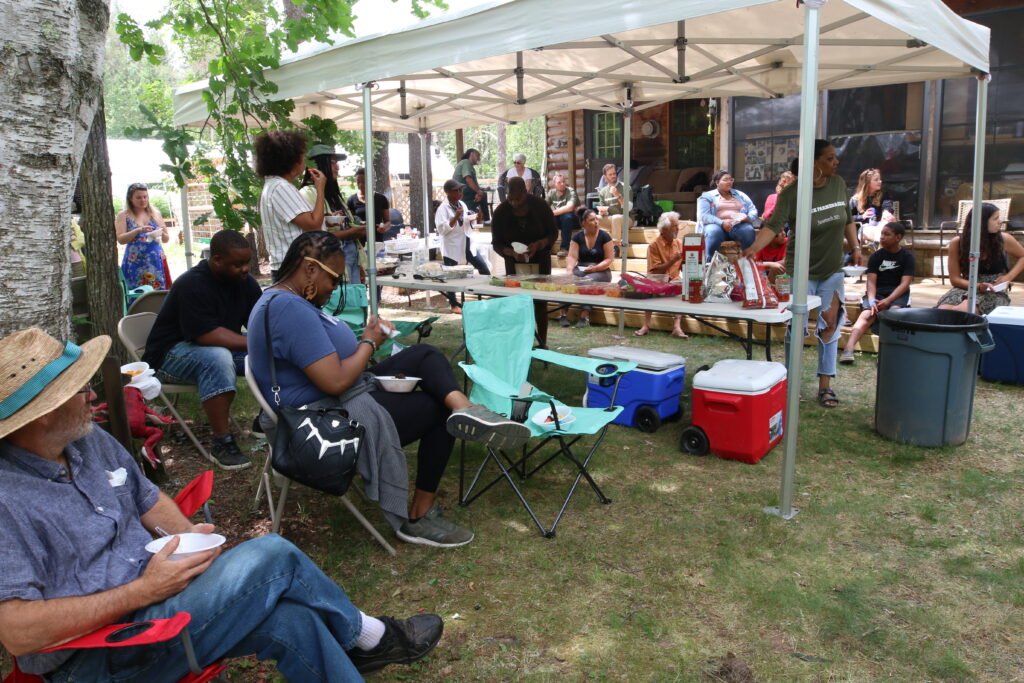
CashColorCannabis: Right now you have people who are ready to pack up and move based on the new laws surrounding edibles? What would you tell them before they pack up and headout to strike gold in Minnesota?
Andrea Dawson: I was speaking with Minnesota Public Radio about this recently. I was asked what have you seen in terms of trends and supply and demand with the edibles since the new law? What I’m hearing in the marketplace right now is that demand is surpassing supply right now. My main concern about that is that we don’t want people buying hemp from weird places, just to make a quick buck because demand is up. We still need to honor the supply chain to make sure that farmers finally are getting their fair share of production.
We also cannot forget about social equity and how important that is when we’re starting to dole out licenses or when we’re starting to think about who’s making the money.
Nathan Ratner: I would just say in terms of the policy, it’s a fair to say that it is the wild west out there right now. You don’t need a special license to produce edibles or sell them. For that exact reason, my only note of caution is that the legislation will not stay the way it is right now. We believe that this next legislative session is where full legalization is going to happen, which was the intent of the legislators and the governor. When they settled on this, they wanted full legalization this term, but it’s a split legislature. So the Democrats control the House and Republicans control the Senate. So this was the only thing they were going to be able to get done. It’s just a wait to see moment now when it comes to what the regulatory environment ends up looking like.
For all the reasons that we think that it’s going to be an amazing state to prepare the amazing opportunity to produce economic justice and equity. Minnesota is going to be an amazing market.
CashColorCannabis: If people wanted to learn more about everything that you do from 40 acre Co Op to, to the great rise, if they’re in Minnesota, and how they can actually get involved with anything that you’re doing. How could they do that?
Andrea Dawson: So luckily, we Yes, we have very active websites on both sides. To learn more about 40 Acre Co-Op you can go to fortyacre.coop You can find The Great Rise here
We have a team of people that are ready to respond to inquiries, we get lots of inquiries every week. And no doubt from this show. We’ll probably hear more. But also the great rise has a really important engagement.

